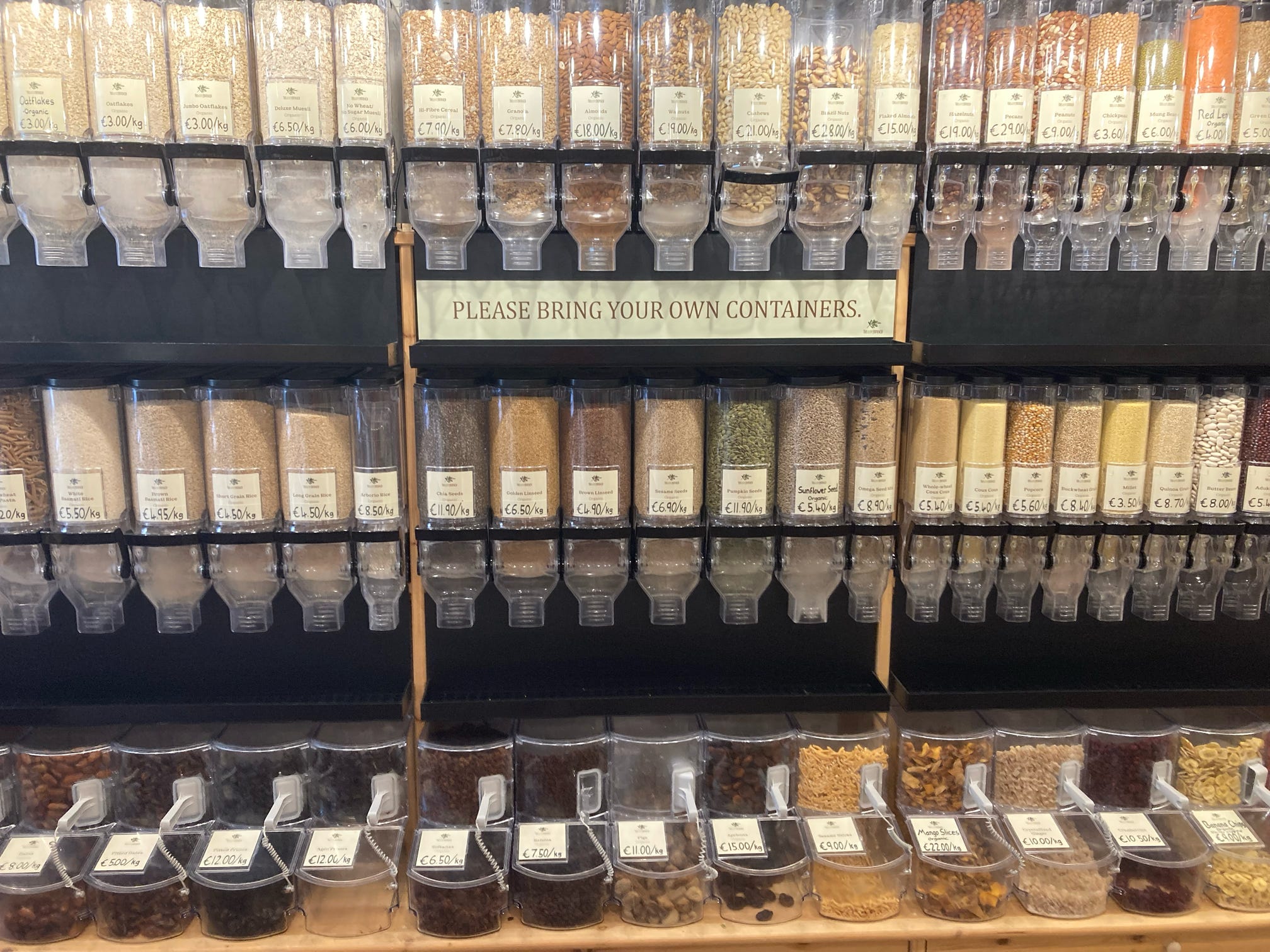The Ask:
While previous demands tackle the problem of plastic pollution, this one focuses on the solutions. We’re calling on all parties to the treat to actively support alternatives to single-use plastics; alternatives that are designed to be reused, repaired, and recycled from the outset. These solutions must be incentivised, backed by policy, and built into the treaty’s core commitments.
Why It Matters:
To shift away from the current throwaway model, we need a system-wide transition. Moving beyond toxic, single-use plastics brings clear wins for our health and our environment. It also opens the door to a truly circular economy that keeps materials in use at their highest value through reuse and repair.
The plastics treaty presents a unique opportunity to set global design standards. These standards can guide countries in phasing out disposable plastics and building robust reuse and refill systems.
What the Treaty Says (and What’s Missing):
Article 5 of the Chair’s Text heading into Geneva includes language on improving durability, reusability, refillability, and repairability. But as our report shows, these are currently just aspirations. Without enforceable targets and clear strategies, they risk remaining empty promises.
Under Article 5(a), the treaty must go further, laying out concrete design standards, including clear labelling and definitions for terms like “recyclable.” These standards can help countries build strong reuse and refill, circular, economies. By setting out clear definitions and global standards, such as clear labelling and standradised design, the treaty can act as a guide for each state to take on and develop their reuse and refill economy. This shift should be backed by Extended Producer Responsibility (EPR) schemes and government support, with binding targets written into the treaty.(We’ll explore financing in our next blog.)
A Just Transition Is Essential:
This change must be must be a just transition. Article 10 of the draft text addresses the Just Transition, but it needs to go further. A just transition for plastics means recognising the people impacted across the value chain, from production to waste management. It means ensuring that the benefits of a circular future are shared, not hoarded.
Todo this, the treaty must link Article 10 more closely with other sections and most importantly, it must listen to those most affected.
Whose Voices Are Heard?
Chapter 6 of our report shows growing awareness of the impacts of plastics on a variety of rights holders; Indigenous peoples, informal workers, women, and children. But so far, their voices have been largely symbolic. For real change, these voices and their concerns must be integrated into the treaty text.
Mean-while, one voice is being heard loud and clear: industry lobbyists. At INC-5.2 in Geneva, over 230 fossil fuel and chemical lobbyists were registered outnumbering country delegates. Their message? “Everything’s fine.” Our message? It’s not.
We need a treaty that supports real solutions, not one shaped by those profiting from the problem. The treaty must have built in support for reuse and refill alternatives to bring about the systemic change needed, without it the aims of the treaty are likely to falter in the medium term.
Want to know more?
Read our full ILBI report [here], and stay tuned for our next post in this series, where we’ll look at how the treaty can promote global targets, definitions, and infrastructure for reuse and refill systems and how Ireland can help.



